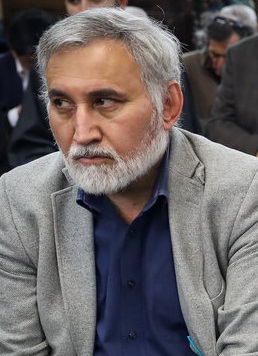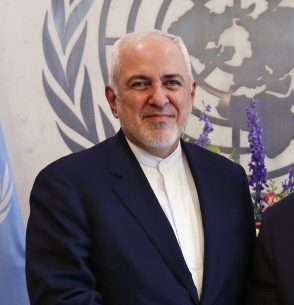July 19, 2019

Mohammad Reza Khatami, the brother of former president Mohammad Khatami and a prominent Reformist figure, has been sentenced to two years in prison for claiming that the 2009 presidential election, officially won by Mahmud Ahmadinejad, was rigged.
He was sentenced on charges of “spreading lies” and “disturbing public opinion.” The ruling was issued by a lower court and Khatami is entitled to appeal the decision.
The case has attracted minimal media attention, but drew public attention after Khatami published the full 324-page text of his defense in violation of orders issued by the judge.
Mohammad-Reza Khatami, 60, is best known for founding and leading the political party that became the vehicle for mobilizing public opinion behind President Khatami’s program after his surprise election in 1997.
When the Iran-Iraq War erupted, he joined the Pasdaran and, in 1982, was wounded in the battle that liberated Khor-ramshahr.
After the war, he went to London to continue his medical education and returned with a degree in nephrology. When his brother was elected president in 1997, he was appointed deputy to Health Minister Mohammad Farhadi, but resigned after disagreements with the minister.
After that, he avoided jobs in the executive branch. Instead, he focused his activities on party politics and was the leader of the Islamic Iran Partnership Party all through his brother’s two terms.
In 2000, he was elected by a considerable margin to the Majlis from Tehran, and in 2001 he was voted in as the first deputy speaker.
Eventually, his outspokenness rubbed so many powerful people in the regime the wrong way that the Guardian Council disqualified him from running for reelection in 2004.
One of his most controversial comments appeared in an interview published in the monthly Rouyesh, in which he broke an unwritten rule and said people were free to criticize the views of Ayatollah Khomeini. “When we review the Imam’s writings and statements, we find things that are in our interest but also things that harm our interests,” he said. “Unfortunately we have turned the Imam into an untouchable person whose ideas and beliefs we are not allowed to discuss even today. And, a few years from now, it might be too late to discuss them.”
Khatami is married to Zahra Eshraghi, a granddaughter of Ayatollah Khomeini, who has been a source of controversy in her own right. For example, in an interview with The New York Times in 2003, she sharply criticized mandatory hejab. “I’m sorry to say that the chador was forced on women,’’ she said. “People have lost their respect for it. I only wear it because of my family status.”
She has also expressed opposition to patriarchy. “As a woman, if I want to get a passport to leave the country, have surgery, even to breathe almost, I must have permission from my husband,” she told the British newspaper Telegraph. She also criticized her grandfather, saying, “The constitution my grandfather approved says that only a man can be president. We would like to change the wording from ‘man’ to ‘anyone.’”
What led to Khatami’s recent trial was an interview he gave in October 2018, in which he publicly called the published results of the 2009 presidential election a fraud. He suggested eight million fraudulent votes had been added to the ballot boxes at the Interior Ministry’s election headquarters to give re-election to Ahmadi-nejad.
Tehran Prosecutor Abbas Jafari-Dolatabadi said in December 2018 that Khatami had not provided any proof to back up his claim.
In his published defense, Khatami said at least 3.35 million printed ballots were not sent to polling stations. “The question is: what happened to these 3.35 million ballots that were to be sent to the provinces?” he asked. “Where did they go? Which candidate’s name was written on them? According to official statements by provincial officials, these ballots were not given to provincial and city governments and what remains [unused] in the vaults of Bank Melli totals 100,000. Then who has the rest? Note that this number relates to only 11 provinces. If we project this to the whole country, then we arrive at a number close to nine million ballots, the fate of which is unknown. I stop at the minimum number, i.e., 3.35 million, because the disaster is so big that even this number is enough to prove it.”
By adding this number to other figures related to unused ballots, Khatami concludes that the fraud involved 8,589,993 fraudulent ballots.
Khatami’s defense also quotes from the unpublished diaries of the late President Ali-Akbar Hashemi-Rafsanjani, citing the entry for June 15, 2009, three days after the presidential election. “Mohsen Rezai came here tonight. He said that he had had a meeting with Messrs. Shamkhani, Larijani, Soleymani and Qalibaf, who believed that eight million fraudulent votes had been cast. They told Mr. Hejazi to inform the Supreme Leader.”
























